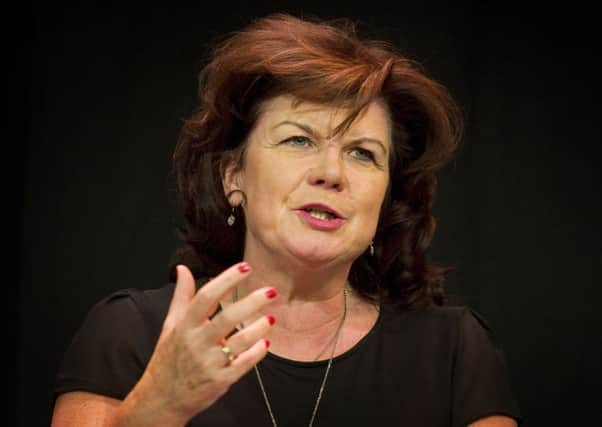Women not given hope by Yes campaign admits Smith


The Rab C Nesbitt star, who sits on the board of Yes Scotland, says the campaign has failed to “ignite” and give women enough incentive or “hope” to overcome any concerns about Scotland going it alone.
Smith, who is also involved in the Women for Independence campaign group, said she was critical of the “talk-down” approach of many public events and debates she had attended, where women were often sidelined.
Advertisement
Hide AdThe actress, who was speaking at pro-Yes Fringe show All Back to Bowie’s, said she was “not surprised” that many women had not made up their minds on which way to vote because of a distrust of men who had been in power for too long.
According to a recent Scottish Social Attitudes Survey, only 27 per cent of women were in favour of independence, compared to 39 per cent of men.
Smith said she had taken part in between 50 and 60 debates across the country over the last 18 months.
The comic actress said: “If I have a criticism of the campaign so far, it is that talk-down – three guys, one women, sitting on a platform, pontificating and telling people what is going to happen.
“I’m a bit concerned about an old Labourite trade union thing that creeps in, where there are maybe no women on the platform and they’ve gone into a ‘This is what we always did, we used to do this 20 years ago and we’ll tell you exactly what’s going to happen here’. It’s not about listening. For me, we should have all been down there, sitting around in the circle and letting the women speak.
“In that environment, I think women feel more able to participate, particularly if they see other women standing up and speaking as well.
Advertisement
Hide Ad“For me, in many ways a No vote is about saying to the couple of thousand people who hold all the power down in London, those elites from Westminster and the City, ‘There you are, you just keep the power, because we don’t really want it. We’re not good enough, bright enough and strong enough to deal with it’.
“In actual fact, what we want is a different way of doing things, a better way of doing things, that engages women particularly. It doesn’t surprise me that women are still making up their minds, it doesn’t annoy me either. I like the fact that they’re going, ‘Wait a minute’.
Advertisement
Hide Ad“Maybe it’s because we don’t trust men that much or that the men that have been in power for a long time have not actually engaged properly.
“It is about that level of hope and change, that maybe the campaign can still do in the next few weeks, but it has not ignited.”
A spokesman for Yes Scotland said: “As Elaine says, women are not less interested or engaged than men in the debate about Scotland’s future but they are generally taking more time to weigh up all the arguments before making their choice and that is absolutely fine. A Panelbase poll last week showed that increasing numbers of women are moving to Yes, particularly when they consider the future of the NHS.”
Speaking at the same Fringe event, blogger Kate Higgins said she had been dismayed by commentators like polling guru Professor John Curtice inferring that women were “feart” of independence.
She said: “The idea that women are lacking confidence is wrong. They are taking longer to make up their minds, they are weighing it all up and why wouldn’t they?
“But there’s also something else going on. I’m out there all the time talking to people on the doorsteps and you do get back stuff from women about, ‘Oh, do you think we could afford it – what are we going to do if it goes wrong?’
Advertisement
Hide Ad“There is a conditioning going on, particularly in the marginalised communities, that this is as good as it gets, this all the power you need and all you are entitled to. It’s tied up with women being kept in a place that society wants them to be and not being allowed to flourish.”